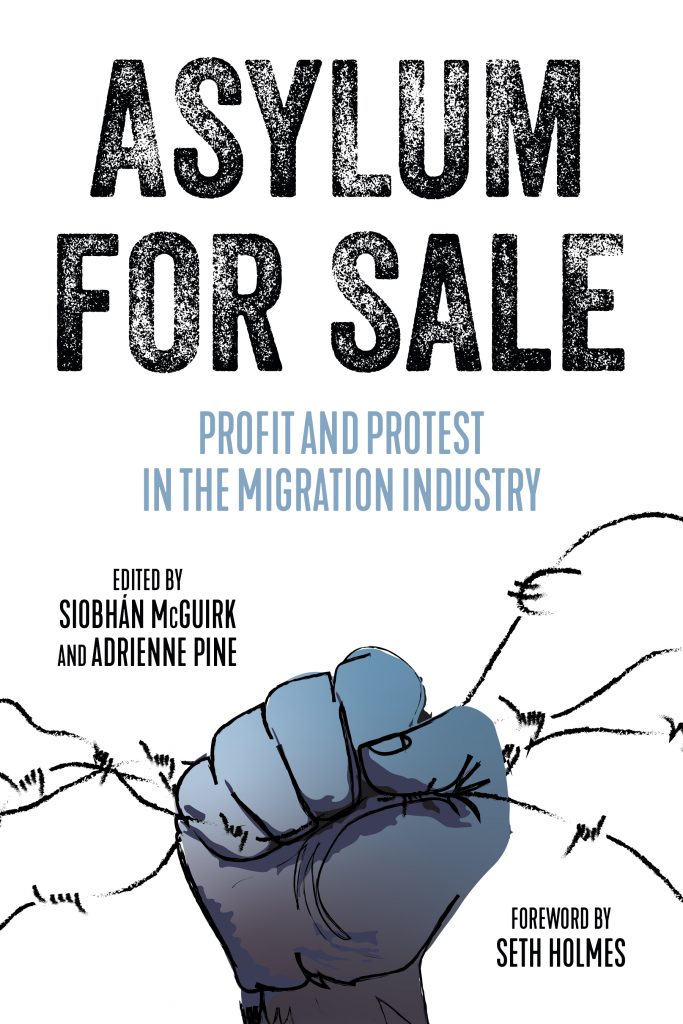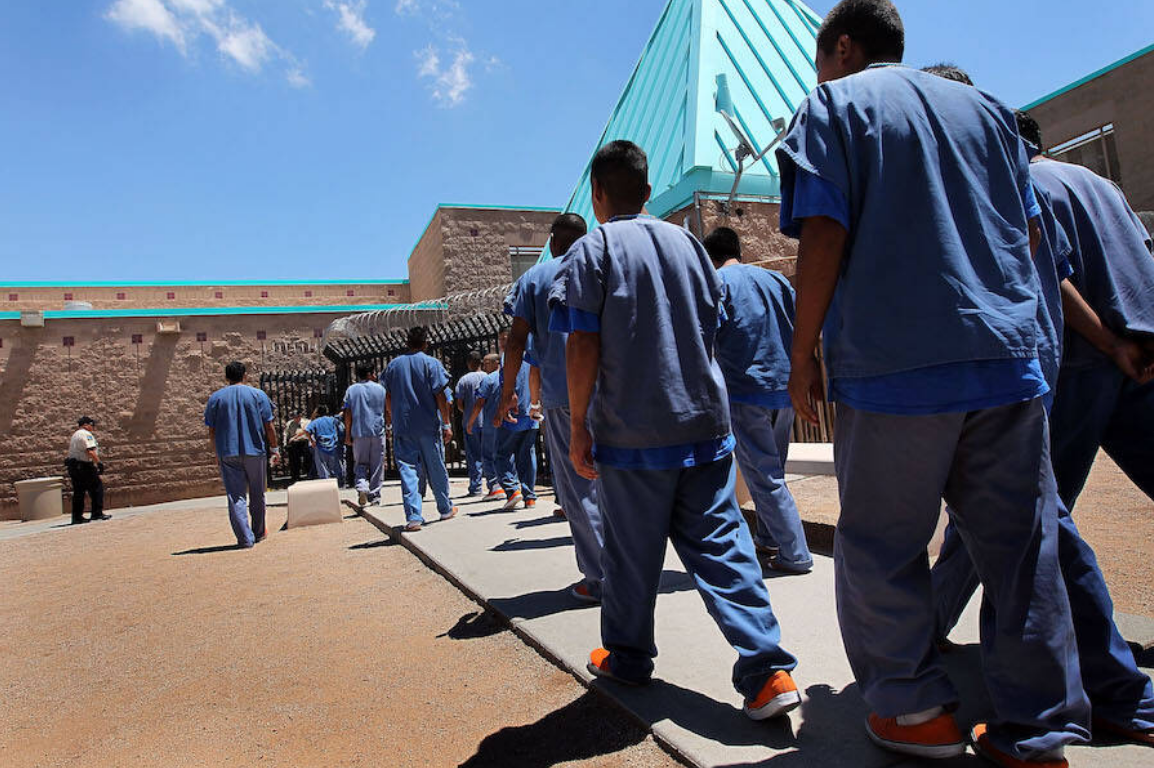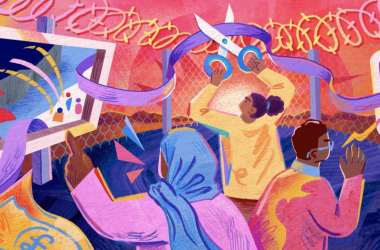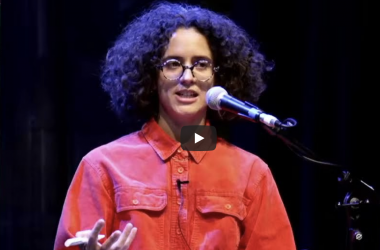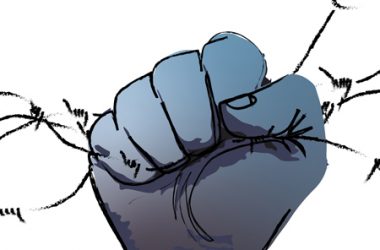A member of the Honduran resistance movement tells his story.
By José López
In These Times
November 16, 2020
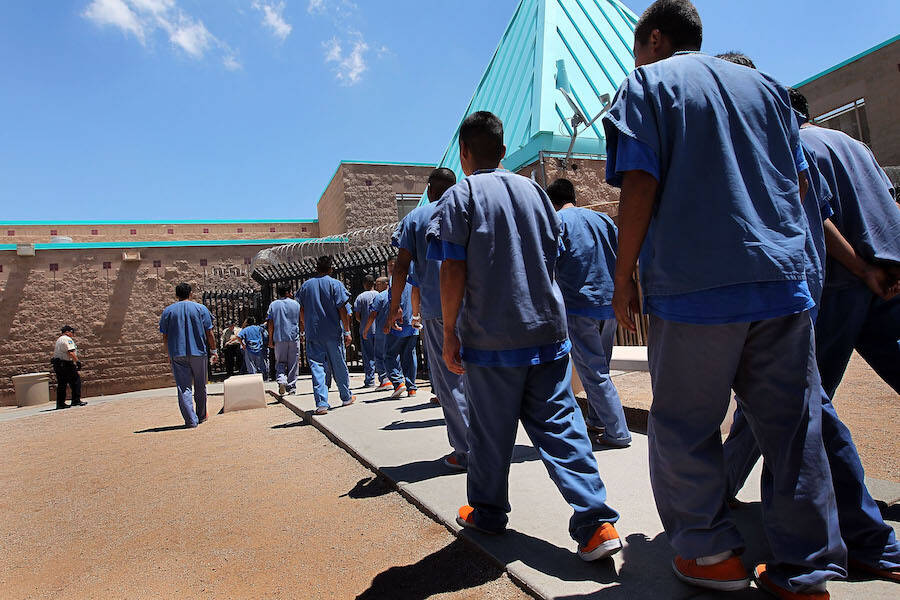
This is an excerpt from Asylum for Sale: Profit and Protest in the Migration Industry, co-edited by Siobhán McGuirk and Adrienne Pine and published by PM Press.
My journey toward becoming an asylum seeker began with a series of violent assaults in my hometown of Tegucigalpa, Honduras, where I was a small business owner. One day in 2015, I noticed I was being followed by a group of men on my way to and from work. This continued for a while, until they attacked me twice in one week. Even as part of the anti-government resistance movement and a gay man, nothing like that had ever happened to me before. I was afraid, so I moved to a new apartment. The same men found me soon after and attacked me for a third time.
Eventually, the violence subsided. Then, the following summer, I was carjacked. My boyfriend and I immediately reported it to the police, but carjackings are extremely common in Honduras. Insurance companies find reasons not to pay out on the claims, as they did with me once my car was found, abandoned and wrecked. Then, two weeks later, my boyfriend received a Facebook threat from a fake profile saying that they were going to kill both of us. The message said, “You’re dating José. Get ready, because we’re going to kill you both.”
This type of violence has always been well-organized in Honduras. It mostly comes from the state and national security structures. They decide who the victims and perpetrators are, and where to sow fear. Honduras is in a state of undeclared and unrecognized war.
After the carjacking and Facebook threat, I was afraid and thought about leaving Honduras for the first time. I had suffered five violent incidents in one year. The sixth came soon after.
When I first opened my store, Frank, a big guy from my neighborhood, showed up every day asking for work, so I hired him. He was a hard worker, but openly homophobic, right-wing and anti-communist. While we never spoke about politics, but he knew my family was with the resistance movement. Frank quickly became hostile. He dropped hints about working as a hitman. He would sneer at my politics, and make comments about my store behind my back, like “this place is full of faggots.”
Worried about my safety, I fired Frank. He then started coming around and threatening me. It became clear that I hadn’t really employed him to protect my business from outside dangers but to keep it (and me) safe from him.
I knew my life was in danger. I had to leave Honduras.
The Consequences of Fear
I knew nothing about asylum back in Tegucigalpa. Seeking asylum is not something anyone wants to do. There is so much stigma against immigrants from Latin America in the United States. I didn’t want to go there. But it was my best option.
I left Honduras in fear and shock. When your situation is that fucked, you can’t prepare as if you were calmly applying for a visa. After arriving in New York City I was told it was a good place to seek asylum, but I couldn’t get support. I went to LGBT organizations, spoke with pro bono attorneys, and even visited the Department of Homeland Security (DHS). No one would help. A woman working at DHS told me: “Asylum is for Russians and Chinese people, not for Hondurans.”
So I went online, printed and filled out the forms, and stuck everything in the mail. Then I traveled back to Honduras to clear out my apartment, take care of my business and employees, and pick up my personal documents. In my rush to leave I had left behind a mess that was affecting my family. Between the muggings, the carjacking, moving to new apartments to escape my attackers, and fleeing, I had racked up a debt of over $12,000. I was afraid to go home but thought I could avoid danger by staying just a few days. I had no idea I wasn’t allowed to go back home after submitting my asylum application.
When I arrived at the Atlanta airport for my flight connection back to New York, airport security searched and interrogated me. I was held for twelve hours and made to do a credible fear interview on the spot. Afterward, I was given a choice: voluntary deportation to Honduras or speak with a judge in two weeks. I chose the latter. They put me on a bus. I had no idea I was being transferred to one of the worst immigration prisons in the country.
Detention
On September 9, 2016, I arrived at Atlanta City Detention Center. It was awful. One Guatemalan man went to the emergency room, and we never saw him again. His parents didn’t hear anything either. I later found out that the federal government in Atlanta paid $78/day for each ICE detainee. Atlanta made $7,020 off my suffering, and millions of dollars per year from the jail. I am glad that Mayor Keisha Lance Bottoms decided to shut it down in 2019.
I was put in a cell with two small bunk beds and a tiny window. It was awful. The entire prison was about 6,500 square feet, with no outdoor recreational area. Most of the time we were locked in our cells. The food was terrible, and it was never enough.
Daily life was rough. When I arrived, a Venezuelan inmate told me, “It’s not going to work out for you. Give up and go back to Honduras.” Other inmates were placed in solitary confinement for up to twelve days.
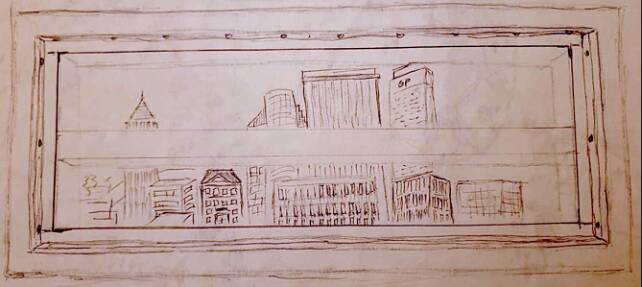
The view from my cell window
In immigration prison, everything is expensive, from attorneys to phone calls to extra food. I spent over $500 in three months there — money I had to borrow. There is massive money in asylum. The state pays corporations to provide food and services. Central Americans and Mexicans make up the majority of people in immigration detention. Some people end up in prison for minor traffic infractions, like driving without a license. In Georgia, if you don’t have papers, things like that can put you in prison for years.
In detention, violence was an everyday reality. It was overcrowded. People were transported there from all over the country. You saw the guards’ hatred in their eyes. Some prisoners were allowed to bring in razor blades and knives. They conspired with the guards to get prisoners they didn’t like sent to solitary confinement.
My cell, unlike the other ones in the prison, had a mix of asylum seekers coming from abroad, and outbound deportees detained on criminal charges, some of whom were dangerous. One of these, a prisoner who was in league with the guards, had already harmed another inmate. Shortly afterward, as I was lining up for my dinner, he loudly said to me: “Let’s see who’s next.” He’d been caught before, during one of the midnight internal raids, with a knife made from razor blades.
Without access to lawyers and being proficient in English, I decided to prepare my case myself. I spent a lot of time in front of the jail computer, researching immigration law. I helped other prisoners write letters in Spanish and English, and explained aspects of their cases to them. It became my currency. One guy who had bullied me stopped when he realized I could help him, but I still feared for my life.
I also read books and wrote about my experiences to pass the time. Otherwise, I would have died of depression. It was 45 days before I finally saw an immigration judge.
Courting Deportation
On November 6, 2016, I arrived at immigration court, just 15 minutes from my prison. I knew my case was complicated — a mix of political oppression, extortion, and homophobia. Plus, I was representing myself.
Everyone was surprised that I had come to court alone and even more surprised that I spoke English. I stood in front of the judge in handcuffs. Always handcuffs. He was visibly impressed at my application. I had expected him to set my asylum hearing date a month later at the beginning of December. Instead, he congratulated me on my papers and set my hearing date for January 25. An additional two months in jail, even with everything in “perfect order.” I couldn’t believe it.
Shocked and upset, I told the judge I couldn’t wait any longer, and that I wanted to withdraw my application. He tried to calm me down, saying it was the best pro se application he had seen in 17 years working on immigration cases. It felt like he was saying I could win. But I knew just 2% of applicants are granted asylum in Atlanta.
Knowing the odds were stacked against me and feeling that my life was at risk, I made my decision. I sat in the courtroom in handcuffs crying, and waited for the guard to take me and the other detainees back to jail.
Over the next few days, I was freaking out. I didn’t want to go back to Honduras. Although I had requested voluntary deportation, it didn’t feel voluntary. It took me a couple weeks to submit the paperwork. It was another month before I was deported. You never know when you are actually going to leave. You find out on the morning of the flight, at 5:00 a.m., when the guards make the announcement.
The morning my name was called, I rode in the back of a car to the airport, along with another Honduran, a Colombian, and a Guatemalan. I climbed the stairs to my aircraft from the runway. It was a humiliating, awful experience. From the airplane gates, everyone saw me getting on in handcuffs. Two ICE officers stood by the gate door until the plane started to move.
I was deported on December 7, the day before my birthday.
The Mark of Asylum
As soon as I returned to Honduras, Frank showed up. I was in hiding and only went to my store once or twice, but he was always there waiting with a friend of his. I knew I had to leave again for my safety.
Today, I live in Barcelona, Spain. After waiting two and a half years for a decision on the claim I filed here, I was finally granted asylum in December 2019. I have been depressed. The economic conditions in Spain are horrible, and there is discrimination against Latin Americans. I work at a call center and half my earnings go toward rent.
Every day, I carry the mark of asylum, an emotional and financial burden. I now am around US$24,000 in debt from my experiences. My family back home is suffering.
Meanwhile, the immigration profit-making machine keeps turning. As the US government funds military interventions in Honduras, my people are extorted and harassed by their own government and forced to flee their homes. The same violence that forces people in one country to seek asylum enables another country to fill its detention cells and fill prison contractors’ pockets. It’s a vicious cycle with profit at every stage, from detention and deportation to relying on immigrants to accept poorly paid jobs that make their bosses rich.
José López (pseudonym) is an agronomist, small business owner, and member of the Honduran resistance movement. He was granted asylum in Spain, where he now lives.
Siobhan McGuirk – In addition to her academic publications addressing gender and sexuality, migration, and social justice movements, McGuirk is an award-winning filmmaker, curator and editor for Red Pepper magazine. Her writing has appeared in Teen Vogue, Rewire News, and Australian Options. She received her Doctorate in Anthropology from American University in 2016 and holds a Masters in Visual Anthropology from the University of Manchester. She is a Postdoctoral Researcher in Anthropology at Goldsmiths, University of London.
Adrienne Pine is a critical medical anthropologist whose work has explored the embodiment of structural violence and imperialism in Honduras, cross-cultural approaches to revolutionary nursing, and neoliberal fascism. She has served as an expert country conditions witness in around 100 asylum cases over the past fifteen years. Adrienne is an assistant professor at the American University and author of Working Hard, Drinking Hard: On Violence and Survival in Honduras.
Check out Adrienne Pine and Siobhán McGuirk’s & new book:
